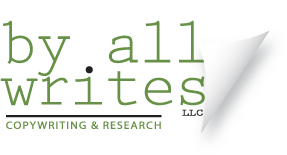
One of the most maddening punctuation marks to learn how to use is the hyphen. Nowadays, this smallest of dashes is considered interchangeable with the “en dash.” (Please don’t confuse the hyphen and the en dash with their longer kissing cousin, the “em dash.”)
Hyphens tend to stimulate subjective sentiments in the hearts of punctuation purists everywhere. The problem regarding hyphens is that there are so many exceptions. When in doubt regarding hyphen usage, I open my dictionary–the hardcover one.
Hyphens serve you well when a compound adjective modifies a noun and when you need to clarify a compound noun. But I am getting ahead of myself. Let’s start at the beginning regarding the hardest-working punctuation “star” in the grammar galaxy.
Standard Hyphen Usage (In Other Words, the Calm Before the Storm): The intriguing hyphen answers to multiple masters. In addition to signaling a word break at the end of a line of text, a hyphen…
…identifies a range of numbers (comparable to the en dash)
…appears in prefix words (again, comparable to the en dash)
…creates certain compound nouns that express a single idea
…creates compound adjectives that modify nouns
Let’s dissect these functions one mother-loving hyphen at a time!
Use Hyphens (and En Dashes) to Indicate Number Ranges: The main clue when inserting a hyphen into a number range is that you could substitute the hyphen/en dash with the word “to.” And when you’re typing, don’t insert any spaces on either side of the hyphen. A few example sentences to confirm what you already suspect regarding number ranges:
My favorite scene in the paperback version of Fifty Shades of Grey appears on pages 565-567.
For homework tonight, please complete all 22 proofs on pages 46-52 in your Geometry Is Structured Fun textbook.
My snozzberry tree used to bear about 500-600 berries each year, but due to the recent drought, I’ve harvested a mere 350-400 scrumptious berries this year.
Many Prefix Words Don’t Need Hyphens (But if It Makes You Happy, Use Them): Guilty reveal–it’s beyond challenging to keep up with proper hyphenation regarding prefixes, unless you have a photographic memory. Since I make no claim of such talent, I rely on a variety of print and online resources to point me in the correct direction.
Per one of my favorite reference books, Who’s (…Oops!) Whose Grammar Book Is This, Anyway?, the word on hyphens in prefix words is:
“As a rule, do not hyphenate words formed with prefixes like pre-, post-, non-, and others [anti-, multi-, re-, sub-, un-]. Thus, pretrial, nonresident, postgraduate, etc.”
But then this grammar bible of mine goes on to share four exceptions when you should hyphenate a prefix word:
When the root word is a date: pre-1980s
When the root word is a proper/formal noun: anti-European, un-American
When the last letter of the prefix and the first letter of the root word are the same (but it remains an optional choice): re-engineer, anti-intellectual
When you want/need to avoid confusing your readers: an un-ionized subatomic particle versus a unionized business model
Here’s my opinion regarding hyphenation of prefix words: If you think using a hyphen adds clarity to a word’s meaning, use it, but be consistent in your usage. That’s all I’ve got to say about that…
Knowing When to Hyphenate Compound Nouns Requires a Dictionary: Most compound nouns aren’t hyphenated. Many other two-word phrases have merged into single, complete words. But there are enough exceptions in your dictionary of choice to keep you slightly off-kilter.
Examples of hyphen-free compound nouns and compound nouns spelled as one word, no hyphen:
- attorney general
- cash flow
- decision maker
- life span
- master builder
- real estate
- boardinghouse
- checkbook
- clearinghouse
- headache
- pickpocket
- workforce
And yet, here are compound nouns your nearest reference book will tell you to hyphenate:
- vice-chancellor, vice-consul, vice-regent (but these days, not vice president–fun!)
- president-elect
- scholar-poet
- student-athlete
- mother-in-law (as well as father-in-law, sister-in-law, brother-in-law…)
- great-grandfather (hyphenate ALL the “greats” in your family!)
- self-control (hyphenate ALL self- compound nouns)
- one-half (hyphenate ALL spelled-out fractions)
- twenty-one (hyphenate all spelled-out compound numbers between 21 and 99)
Knowing When to Hyphenate Compound Adjectives Requires a Dictionary and a Vivid Imagination: Don’t let the phrase “compound adjective” alarm you. It’s an adjective containing more than one word that functions as a single expression. When a compound adjective precedes a noun to modify it (i.e., describe or enhance it), in most cases, you will place a hyphen between the words.
A compound adjective can contain two words, but it also can contain three or even four words, and so on. The roll call of exceptions may tempt you to push an ice pick into your gray matter and perform a self-lobotomy. (Yes, that was hyperbole, but it’s not too far off the grammatical path.)
Compound adjectives are either open (privately held company), hyphenated (well-known restaurant), or closed (bookkeeping ledger). Say what?!?
Let’s address the easiest one first–the open compound adjective:
When a compound adjective that precedes a noun starts with an adverb ending in -ly (commonly, widely, sorely, happily, etc.), you don’t hyphenate it. Some snappy examples:
These days, whipping a child’s hand with a rod is a rarely used form of punishment in public schools. (No hyphen…)
My newly single friend Tabitha refuses to give up her AshleyMadison.com account. (No hyphen…)
We’re confident the happily ensconced newlyweds in the room above ours are enjoying their honeymoon… (No hyphen…)
And now for something a bit more treacherous to navigate–the hyphenated compound adjective:
You typically hyphenate a compound adjective when the multiword phrase appears BEFORE a noun (essentially, the word it modifies).
But here’s the problem: It’s beyond challenging to sort and categorize ALL hyphenated compound adjectives. That’s because you can create new compound adjectives all day long and never find (most of) them in a standard dictionary. There is no online master list of hyphenated compound adjectives for you to bookmark as your safety net. Inconceivable!
Okay, time for more example sentences:
My Hollywood-crazed cousin, Martha, is on a mission to meet the entire cast of Magic Mike XXL this summer.
Of all the annoying traits I can’t abide in a person, being a loose-lipped braggart tops my list.
As a freelancer, I foresee by-the-hour office space in my professional future…
And even more hyphenated fun for you to know: You DON’T hyphenate a compound adjective when it FOLLOWS a noun it’s modifying, unless omitting the hyphen changes the meaning of the sentence. Oy vey! And so, based on my example sentences:
My cousin Martha, on a mission to meet the entire cast of Magic Mike XXL this summer, is Hollywood crazed.
That braggart I know is too loose lipped for me to abide.
I foresee renting office space by the hour in my professional future.
Sometimes You Hyphenate to Remove Ambiguity from Your Sentences: Here’s more hyphenated wisdom to mess with your mind. In general, you hyphenate compound adjectives that combine a noun with an -ing verb: a hair-raising experience, a thought-provoking article, etc.
And when the compound adjective follows the noun, you don’t hyphenate: The article was thought provoking. But does this mean that people thought the article was quite provoking, or was the article a thought-provoking piece of journalism?
If the word “thought” isn’t being used as a verb, you would still hyphenate the compound adjective: “The article was thought-provoking.”
(You can stop reading right here if you want to…)
Bonus Trivia–the Title of Herman Melville’s Whale of a Book Is Hyphenated: Although Moby-Dick, originally titled The Whale, contains a hyphen, the actual whale is referred to as Moby Dick throughout the book. No, I’m not delusional–go ahead and take another look at this post’s photo.
No one knows for sure why or how the nonexistent hyphen within the book’s pages migrated to the book’s title. It’s an unsolved mystery. It’s also a puzzlement!
I realize your brain might be fried by all this circuit-overloading advice regarding hyphenation. To ease your pain, I’m including these links for your bookmark-induced pleasure:
GrammarBook.com’s page regarding hyphens
The Chicago Manual of Style’s online hyphenation table (a delightful, 10-page PDF)
Grammar Girl’s opinion regarding hyphen usage
My final words of hyphenating wisdom to you: When in doubt, crack/click open your dictionary of choice, look up the word or phrase in question, and follow that good example.
I am, of course, a Merriam-Webster girl (always and forever). Other reasonable choices include the Oxford English Dictionary, the American Heritage Dictionary, and the online-only Dictionary.com. My go-to grammar book, Who’s (…Oops!) Whose Grammar Book Is This Anyway?, is available for purchase via Amazon and Barnes & Noble.
Happy hyphenating, dear readers…
Lori Shapiro is the owner of By All Writes LLC, a business-to-business (B2B) writing, editing, and research company in Marlton, New Jersey. She revels in shielding her clients from the pain of writing their own print or web marketing and educational copy. Please call Lori Shapiro at 856-810-9764 or email By All Writes LLC at lori@byallwrites.biz for a no-obligation project quote today!










Sorry, comments are closed for this post.